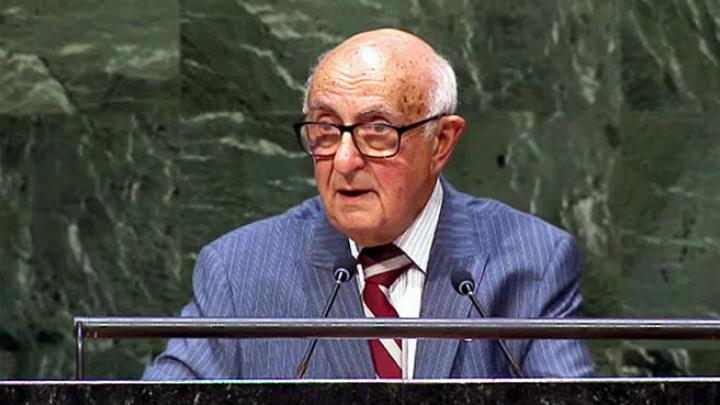Statement by President Theodor Meron on the occasion of International Justice Day

On International Justice Day, we mark the anniversary of the adoption of the Rome Statute, the founding treaty of the International Criminal Court: the world’s first permanent international criminal tribunal.
In doing so, we pay tribute to the vision and commitment of all those individuals who have advocated, and continue to advocate, for justice to be more than an abstract ideal, for national and international courts to bring to trial those alleged to be responsible for serious violations of international law, and for States to protect their citizens.
We are also reminded of how truly revolutionary the notion of establishing an independent international criminal court sounded just a few decades ago. And we celebrate all international criminal courts and tribunals’ achievements in addressing impunity, promoting the development of international law, and bringing a measure of justice to victims.
As the first two international criminal tribunals established since World War II, the International Criminal Tribunal for the former Yugoslavia (ICTY) and the International Criminal Tribunal for Rwanda (ICTR) have played a pioneering role in the field of international justice. Through hundreds of decisions and judgments rendered over the past two decades, the ICTY and ICTR have established the accountability of individuals for the most heinous acts imaginable and through adjudication clarified the contours of international humanitarian law. Among other things, the Tribunals have affirmed that rape and other forms of sexual violence can amount to genocide; that not only senior military leaders, but also civilians and political figures, can be held accountable for the actions of their subordinates; and that heads of State can be brought to justice for serious crimes allegedly committed under their authority.
The establishment of the Mechanism for International Criminal Tribunals (MICT), the successor institution for the ICTY and ICTR, demonstrates the international community’s continued commitment to principled accountability and its resolve to ensure that the closure of the first two ground-breaking Tribunals will not open the way for impunity to reign once more.
Finally, on this day, we are called upon to remember that international justice is not the responsibility of international courts alone. All those who are committed to justice and the rule of law – in local communities, in State governments, and around the world – have a vital part to play in ensuring that violations of international law are answered not with indifference but with determination, that principles of fairness and respect for human rights inform all efforts to secure accountability, and that the success of international justice depends on sustained support and cooperation today, and every day.